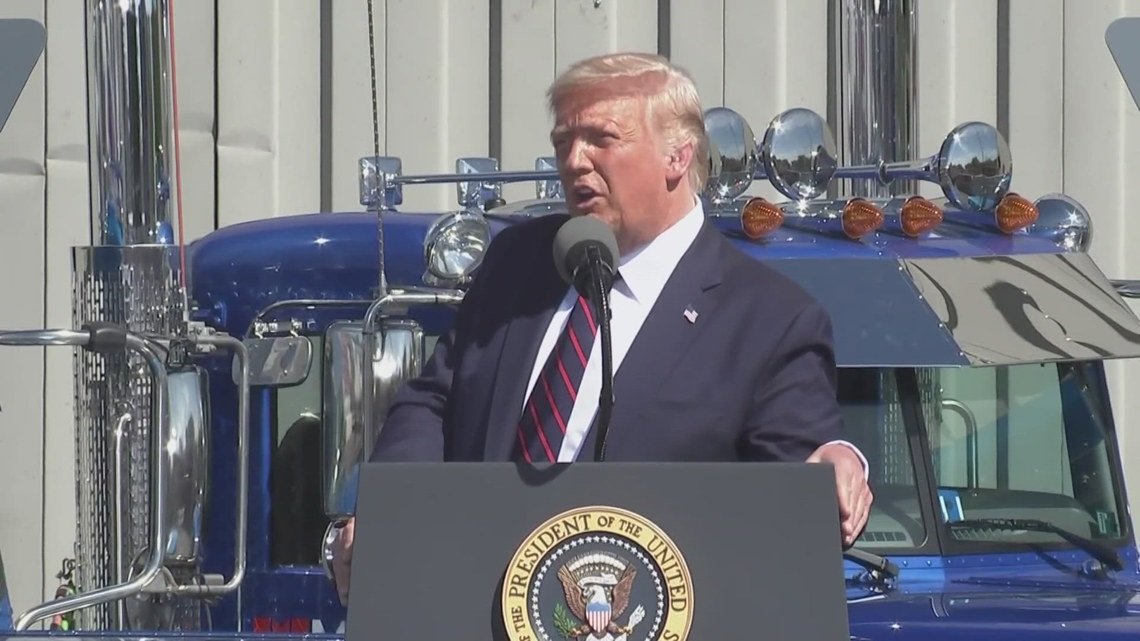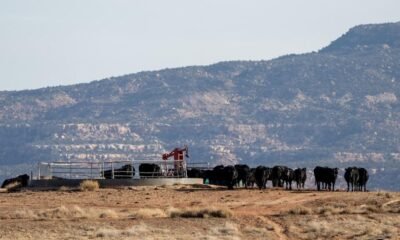arizona
Arizona Prosecutors Urge Grand Jury to Spare Trump in ‘Fake Electors’ Investigation

Records filed by the Arizona attorney general’s office show that as grand jurors were considering possible charges, a prosecutor asked them not to indict Trump.
PHOENIX — The Arizona grand jury that indicted 18 Republican supporters of Donald Trump wanted to consider charging the former president, but prosecutors urged them not to, according to newly filed court documents.
The documents, filed by Democratic Attorney General Kris Mayes’ office, reveal significant exchanges between prosecutors and grand jurors during 18 days of testimony.
While grand jurors deliberated possible charges, a prosecutor asked them to refrain from indicting Trump, citing a U.S. Justice Department policy against double jeopardy. Additionally, the prosecutor expressed uncertainty about whether sufficient evidence against Trump had been gathered at that time.
“I know that may be disappointing to some of you,” the prosecutor stated. “I understand.”
Ultimately, the grand jury charged 18 individuals with forgery, fraud, and conspiracy, including the 11 Republicans who falsely claimed Trump had won Arizona, along with five lawyers and two former Trump aides.
Although Trump was not charged, the indictment names him as an “unindicted coconspirator.” Trump is already facing a federal case from special counsel Jack Smith related to efforts to overturn the 2020 presidential election. Arizona prosecutors also revealed advisors had appealed to the grand jury not to indict a group of Republican state lawmakers for urging then-Vice President Mike Pence to accept Arizona’s forged electoral college certificates.
The court records document the grand jurors’ inquiries about charging the 22 sitting Republican lawmakers and eight others, who had not yet assumed office, with fraud. Prosecutors expressed caution over proving intent to defraud by all legislators who signed the document.
Earlier this week, attorney Jenna Ellis agreed to cooperate with Arizona prosecutors, leading to the dismissal of her charges. Ellis had pleaded guilty in Georgia last year for attempts to overturn Trump’s 2020 election defeat in the state.
Republican activist Loraine Pellegrino, who falsely claimed Trump had won Arizona, became the first person convicted in the state’s fake elector case. She pleaded guilty to a misdemeanor charge of filing a false document.
Remaining defendants, including former New York City Mayor Rudy Giuliani and Trump’s Chief of Staff Mark Meadows, have pleaded not guilty.
The 11 Arizona Republican electors had met on Dec. 14, 2020, to sign a certificate claiming they were “duly elected and qualified” and that Trump won the state. President Joe Biden had won Arizona by 10,457 votes. A video of the signing ceremony was posted on social media but was later ignored by Congress and the National Archives.
Similar criminal charges related to the fake elector scheme have been filed in Michigan, Nevada, Georgia, and Wisconsin. Arizona authorities announced felony charges in late April.
The grand jury excerpts are part of a document responding to defendants’ requests to dismiss their charges. Defense lawyers argued their clients’ actions were protected by free speech rights and accused the Attorney General’s Office of bias.
Prosecutors rebutted, stressing grand jurors’ independence and discretion in bringing charges. An investigator assured a grand juror that neither Mayes nor her staff desired a specific outcome.


















